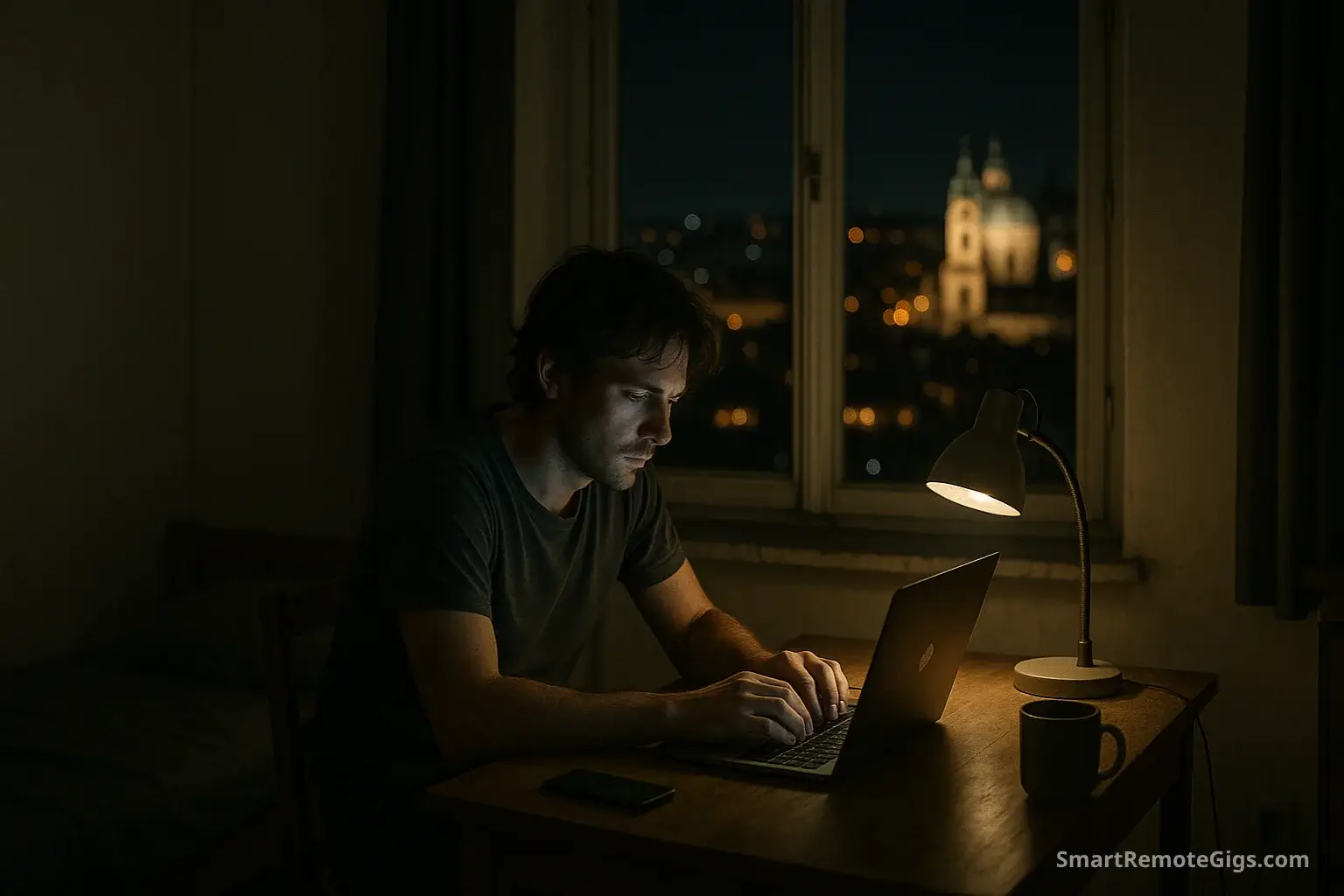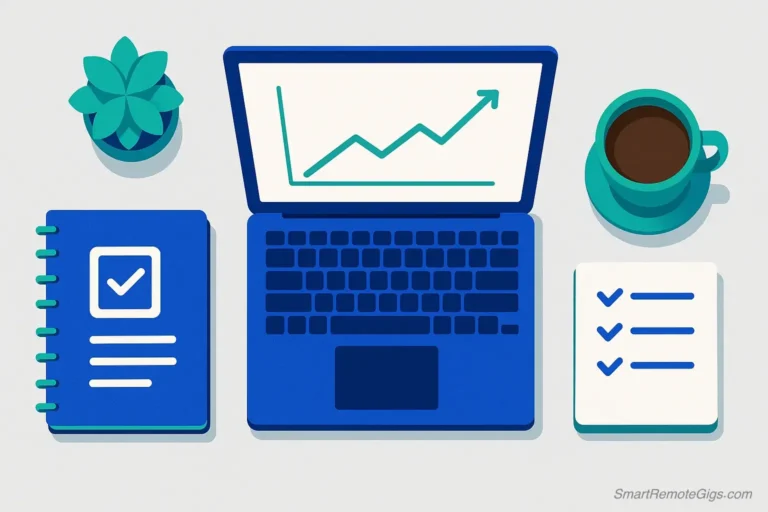Five years, 30 countries, and countless mistakes later, here’s what I wish I’d known before boarding that first flight to Lisbon with nothing but a backpack and naive optimism. The digital nomad lifestyle truths aren’t what you see on Instagram—they’re messier, lonelier, and more challenging than the curated feeds suggest.
I’m not here to crush your dreams. I’m here to give you the unfiltered reality so you can make an informed decision. Because while the nomadic life has been transformative, it’s also been one of the hardest things I’ve ever done. The digital nomad reality includes burnout at 2 AM in a Bangkok coworking space, crying over visa rejections, and realizing that running away from your problems doesn’t work when your problems travel with you.
But here’s the thing: despite every brutal truth I’m about to share, I’d do it all again. The key is knowing what you’re signing up for.
A reality check from someone who’s lived it: “The hardest part isn’t the logistics or the loneliness—it’s the constant pressure to be grateful for a life that everyone thinks is perfect. Sometimes you just want to complain about slow WiFi without someone reminding you how ‘lucky’ you are.”
– My journal entry from month 18 in Mexico City
Truth #1: It’s a Job, Not a Vacation
The biggest misconception about nomadic life is that it’s an extended vacation funded by mysterious laptop work. I spent my first three months in Thailand trying to work from beaches, convinced I was living the dream. Reality check: sand gets in your keyboard, the sun creates screen glare, and trying to take client calls with waves crashing in the background is unprofessional.
My productivity plummeted that first quarter. I was so distracted by the excitement of being in exotic locations that I treated every day like a holiday. Clients started complaining about delayed deliveries. My income dropped 40% because I was prioritizing exploration over execution.
The downsides of being a digital nomad become crystal clear when you realize you’re still accountable to deadlines, clients, and professional standards—regardless of whether you’re in Bali or Bangkok. The laptop lifestyle requires more discipline than office work, not less.
How to Overcome It:
- Create strict work hours and stick to them religiously
- Establish a dedicated workspace separate from leisure areas
- Use time-blocking to separate work and exploration
- Set professional boundaries with clients about availability
- Track your productivity metrics to maintain accountability
- Schedule “boring” work days without tourist activities
Truth #2: Loneliness is a Professional Hazard
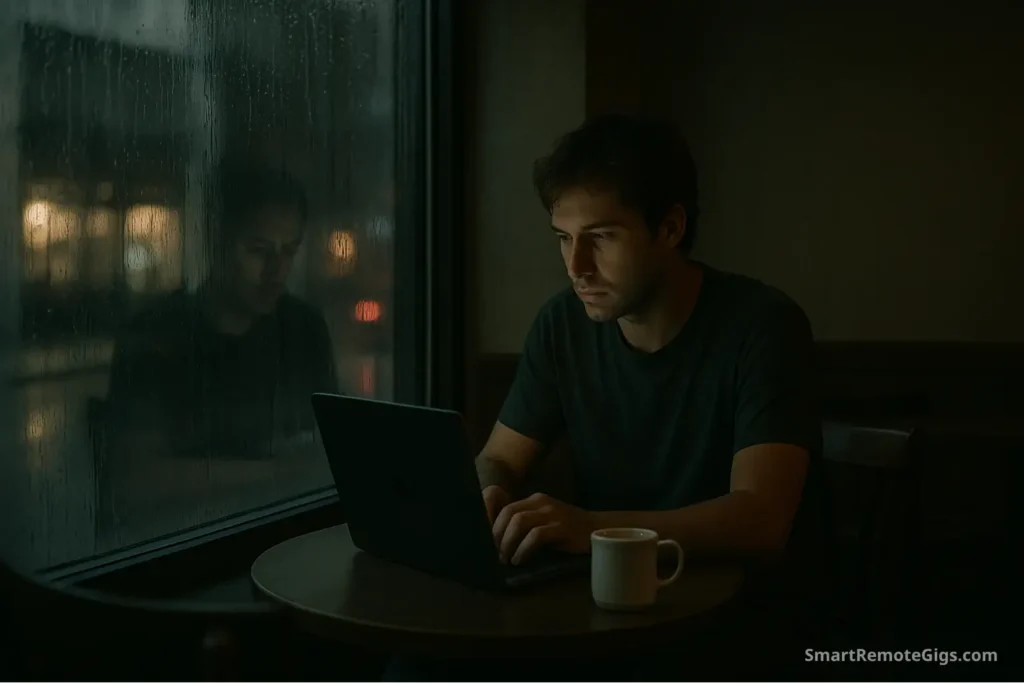
This was my biggest shock. I’m naturally introverted and thought I’d thrive with the freedom and solitude. Instead, digital nomad loneliness became my constant companion. In month eight, I spent three weeks in Prague speaking to almost no one except Uber drivers and coffee shop baristas. I started having full conversations with Siri just to hear English.
The loneliness isn’t just social—it’s professional. When you’re used to office banter, brainstorming sessions, and casual collaboration, working solo can feel isolating. I missed having colleagues to bounce ideas off, celebrate wins with, or even complain about difficult projects together.
Is being a nomad hard? Absolutely, and loneliness is the reason 60% of nomads return home within their first year. Social media makes it worse because everyone else’s nomadic life looks perfectly connected and fulfilled.
How to Fight It:
- Join coworking spaces immediately, not eventually
- Attend every social event for your first month (even when tired)
- Schedule weekly video calls with friends and family
- Use Meetup.com to find activity-based communities
- Consider staying in nomad-friendly accommodations initially
- Join online communities like Nomad List for virtual connection
- Take local classes to meet residents, not just other travelers
The one thing that saved me from loneliness was becoming a regular somewhere. In Budapest, I went to the same café every morning for six weeks. The barista learned my order, I met other regulars, and suddenly I had a community anchor point.
Truth #3: The Logistics Will Grind You Down
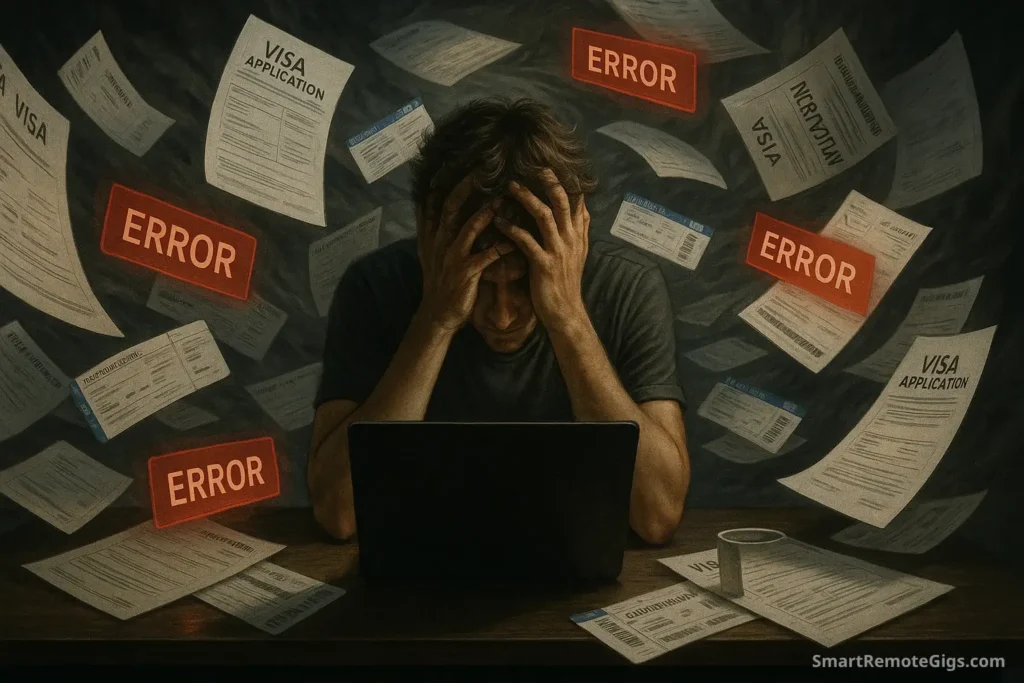
Nobody warns you about the mental energy consumed by constant logistics. Visa applications, finding apartments, researching neighborhoods, comparing insurance options, figuring out local transportation—it never ends. By month ten, I was spending 15-20 hours per week on logistics instead of income-generating work.
My lowest point was spending an entire day in a Lisbon immigration office, only to be told I had the wrong form. I sat in that plastic chair and questioned every life choice that led me there. The bureaucracy of nomadic life is exhausting and never-ending.
The logistics include:
- Visa applications and renewals every 30-90 days
- Finding reliable internet before committing to accommodation
- Understanding local banking and payment systems
- Navigating healthcare in different countries
- Managing taxes across multiple jurisdictions
- Dealing with time zone confusion for client work
My biggest mistake was thinking I could handle logistics on-the-fly. Planning ahead is the only way to maintain sanity.
How to Overcome It:
- Batch similar tasks (all visa research in one session)
- Create standardized checklists for each destination
- Use services like Wise for banking and RemoteYear for planning
- Build logistics time into your work schedule
- Join nomad groups for destination-specific advice
- Consider longer stays (2-3 months minimum) to reduce frequency
- Hire local assistance for complex procedures when budget allows
Truth #4: Your Income Will Be Unstable (Especially at First)
Financial stability was my biggest anxiety trigger. Even with a solid freelance client base, nomadic life introduces income volatility you don’t expect. Clients drop out, projects end unexpectedly, payment delays stretch longer when you’re abroad, and currency fluctuations affect your purchasing power daily.
I learned this lesson harshly in month 14 when my biggest client terminated our contract with two weeks’ notice. Suddenly, I was in an expensive European city with 60% less income and no local support network. I had to take several low-paying rush jobs just to cover rent and flights.
The feast-or-famine cycle is real. Some months I earned double my previous office salary; others barely covered basic expenses. The stress of financial uncertainty while managing visa deadlines and accommodation costs created a perfect storm of anxiety.
How to Overcome It:
- Build a 6-12 month emergency fund before starting
- Diversify income streams across multiple clients/projects
- Price your services 20-30% higher to account for instability
- Create recurring revenue streams when possible
- Track expenses obsessively to identify cost-cutting opportunities
- Consider starting with remote employment before freelancing
- Build relationships with reliable, long-term clients before traveling
Truth #5: Relationships (Romantic and Otherwise) Become Complicated

Dating as a nomad is uniquely challenging. How do you build meaningful relationships when you’re leaving in two months? I had several promising connections that fizzled because of the inevitable expiration date. Local dating becomes complex when there’s an obvious power dynamic (you’re wealthy enough to travel, they may see opportunity), and dating other nomads often means competing schedules and destinations.
Maintaining existing relationships requires constant effort. Friends at home stop inviting you to events because you’re never there. Family members feel disconnected from your lifestyle. Professional relationships suffer when you can’t attend in-person meetings or networking events.
The hardest part was watching friends at home build deeper connections while mine remained surface-level due to constant movement.
How to Overcome It:
- Be upfront about your timeline with romantic interests
- Invest heavily in a few deep relationships rather than many casual ones
- Schedule regular check-ins with important people back home
- Plan visits home or invite people to visit you
- Use shared experiences (travel together) to deepen bonds quickly
- Join long-term nomad communities for ongoing connections
- Consider seasonal nomadism to maintain home base relationships
Truth #6: Your Health Becomes Your Full-Time Responsibility
Healthcare abroad is a constant concern that office workers never consider. I’ve dealt with food poisoning in rural Thailand, dental emergencies in Mexico, and a suspected appendicitis scare in Portugal. Each incident required navigating foreign healthcare systems while managing language barriers and insurance complications.
Mental health is equally challenging. The combination of isolation, uncertainty, and constant adaptation can trigger anxiety and depression even in previously stable individuals. I experienced my first panic attacks during month 20, triggered by visa stress and financial anxiety.
Maintaining routine health habits becomes difficult when your environment constantly changes. Finding gyms, healthy food options, and maintaining sleep schedules across time zones requires constant attention.
How to Overcome It:
- Invest in comprehensive international health insurance
- Research healthcare systems before visiting any destination
- Build a comprehensive first-aid kit and know how to use it
- Maintain relationships with healthcare providers who offer telemedicine
- Create portable health routines that work anywhere
- Prioritize mental health through therapy, medication, or support groups
- Choose destinations with good healthcare infrastructure initially
Truth #7: The Comparison Game is Brutal
Social media makes nomadic life look effortless and glamorous. Everyone else seems to have figured out the perfect balance of work, travel, and fulfillment. I spent countless hours comparing my behind-the-scenes struggles to other people’s highlight reels.
The nomad community can be particularly competitive about destinations, income levels, and lifestyle optimization. There’s subtle pressure to constantly upgrade your experiences and share your successes. Meanwhile, failures and challenges remain largely invisible.
My worst comparison spiral happened during month 25 when a fellow nomad posted about their six-figure year while I was struggling to replace a lost client. I spent weeks questioning my career choices and travel decisions.
How to Overcome It:
- Limit social media consumption, especially Instagram and nomad groups
- Follow accounts that share realistic experiences, not just highlights
- Focus on your personal goals rather than others’ achievements
- Remember that everyone’s timeline and definition of success differs
- Share your own struggles to help normalize the challenges
- Celebrate small wins to maintain perspective
- Build real relationships beyond social media connections
Truth #8: You’ll Question Everything (Constantly)
The freedom to go anywhere creates paralysis about where to go. Should I prioritize low costs or career opportunities? Beach lifestyle or cultural experiences? Safety or adventure? The constant decision-making is exhausting.
I’ve changed destinations mid-booking, second-guessed visa applications, and spent entire days researching neighborhoods only to choose differently the next day. The paradox of choice becomes overwhelming when you have infinite options but limited time and money.
Decision fatigue became my biggest enemy. By month 30, I was struggling to choose restaurants, let alone life-changing travel decisions.
How to Overcome It:
- Create decision-making frameworks with clear criteria
- Set constraints to limit options (budget, duration, weather)
- Make decisions quickly and commit to them
- Ask nomad communities for specific recommendations
- Accept that no choice is perfect; good enough is fine
- Take breaks from planning to prevent overwhelm
- Consider slower travel to reduce decision frequency
Truth #9: Home Becomes a Complicated Concept
After five years, I struggle to answer “where are you from?” The place I was born feels foreign; the places I’ve lived feel temporary. This identity displacement is disorienting and emotionally challenging.
There’s also practical homelessness. I don’t have a bedroom to return to, childhood items in storage, or a local doctor who knows my history. During family emergencies or personal crises, the lack of a home base becomes painfully apparent.
The emotional weight of not belonging anywhere hit me hardest during holidays, when social media filled with family gatherings I couldn’t attend.
How to Overcome It:
- Maintain a storage unit or base location for important items
- Create rituals and traditions that travel with you
- Define home as people and experiences rather than places
- Keep strong connections to one meaningful location
- Accept that identity evolution is part of the journey
- Document your journey to create continuity
- Consider establishing temporary roots in favorite destinations
Truth #10: The Pressure to Be Grateful is Exhausting
Everyone assumes nomadic life is perfect, which creates enormous pressure to never complain. Friends dismiss your problems because “at least you’re traveling.” Family members question your challenges because you “chose this lifestyle.”
The gratitude police are everywhere—including in your own head. I felt guilty for being homesick in paradise, frustrated by slow internet in beautiful locations, or lonely while surrounded by interesting people. The pressure to constantly appreciate your privilege becomes another source of stress.
The most liberating moment was giving myself permission to have bad days without justifying them with gratitude.
How to Overcome It:
- Find communities where you can express frustrations honestly
- Remember that choosing a lifestyle doesn’t mean accepting all its downsides silently
- Practice genuine gratitude without toxic positivity
- Set boundaries with people who dismiss your challenges
- Acknowledge that all lifestyles have trade-offs
- Validate your own experiences without external approval
- Seek therapy or counseling to process complex emotions
So, After 5 Years, Is It Still Worth It?
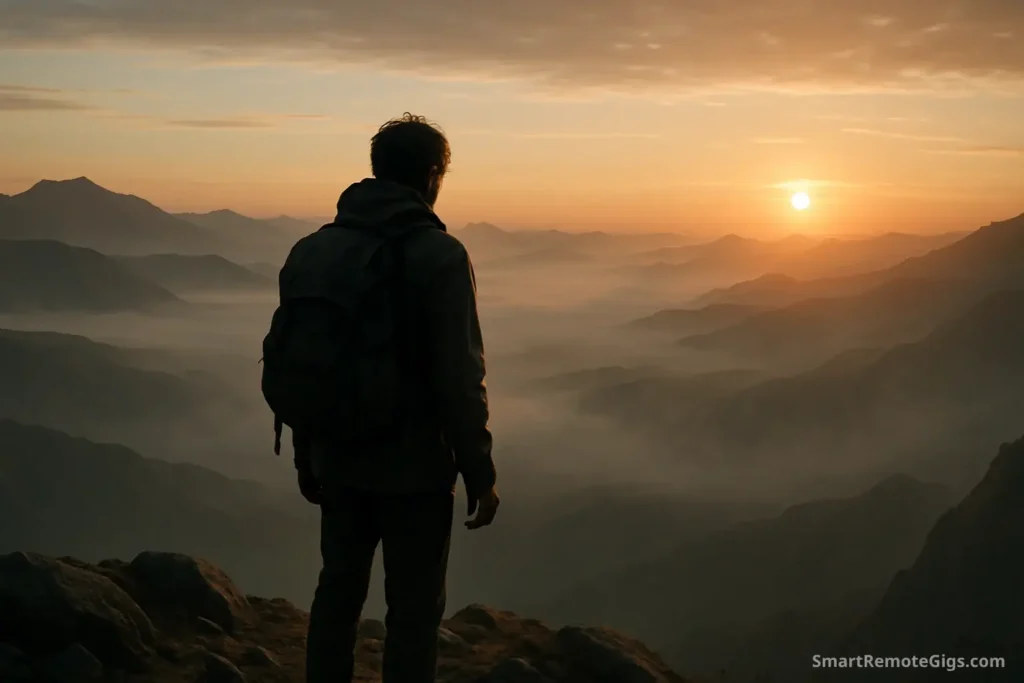
Yes—but with massive caveats.
The nomadic lifestyle has taught me resilience, adaptability, and self-reliance I never knew I possessed. I’ve experienced incredible cultures, built a global network, and created memories that will last a lifetime. The personal growth has been exponential, even when painful.
But it’s not for everyone, and it’s not forever for most people.
Who Should Consider Nomadism | Who Should Reconsider |
|---|---|
Self-motivated workers who thrive independently | People who need external structure and accountability |
Those comfortable with uncertainty and change | Individuals who prefer routine and predictability |
People with portable skills and income | Those in location-dependent careers |
Adventurous spirits with strong problem-solving skills | Risk-averse individuals or those with major health concerns |
Those willing to sacrifice material comforts for experiences | People who derive security from possessions and consistency |
The brutal truth is that nomadism amplifies both your strengths and weaknesses. If you’re prone to anxiety, the uncertainty will trigger it. If you struggle with discipline, the freedom will derail you. If you’re naturally resilient and adaptable, you’ll likely thrive.
For me, the benefits outweigh the challenges, but barely. Some days the scales tip toward regret; others toward profound gratitude. That tension is part of the experience.
My advice: Try it for 3-6 months before making dramatic life changes. Keep your home base options open. Don’t burn bridges. And remember that returning home isn’t failure—it’s data about what works for your unique situation.
The Real Question Isn’t “Should I Become a Nomad?”
The real question is: “Am I ready to handle the challenges for the rewards this lifestyle offers?”
Because make no mistake—this lifestyle will test you in ways you can’t imagine. It will show you parts of yourself you didn’t know existed, both good and difficult. It will teach you that freedom and comfort rarely coexist, and that Instagram highlights never tell the full story.
But if you’re ready for that challenge, if you can handle the loneliness, logistics, and uncertainty, the nomadic life offers unparalleled opportunities for growth, adventure, and self-discovery.
Just don’t say I didn’t warn you about what you’re signing up for.
Want to understand the complete picture before making your decision? Check out The 2026 Digital Nomad Guide: Your Roadmap to Freedom for the practical blueprint to succeed despite these challenges.
And for mental health resources specifically designed for travelers and nomads, explore the comprehensive support available at Psychology Today’s Travel Therapy directory.
The choice is yours. But now you’re making it with your eyes wide open.
Frequently Asked Questions
Is digital nomadism just a phase or sustainable long-term?
For most people, it’s a phase lasting 1-3 years. Very few maintain constant travel for decades. Many evolve into “slow-mads” or seasonal travelers. There’s no shame in any timeline—the experience is valuable regardless of duration.
How do you handle the downsides of being a digital nomad day-to-day?
Building systems and routines is crucial. I have checklists for every destination, backup plans for common problems, and strict boundaries around work time. The key is accepting that some days will be logistical nightmares and planning accordingly.
What’s the biggest misconception about digital nomad loneliness?
People assume it’s just about being alone, but it’s deeper. It’s about lacking meaningful connections and shared experiences. You can be surrounded by people but still feel isolated when relationships remain surface-level due to constant movement.
Do you ever regret choosing the nomadic lifestyle?
Honestly? Some days, yes. Especially during visa rejections, health scares, or family emergencies when being far from home feels like a terrible mistake. But these moments pass, and the growth I’ve experienced makes the struggles worthwhile.
Is being a nomad hard on mental health?
It can be. The uncertainty, isolation, and constant adaptation are stress triggers for many people. However, it can also be incredibly healing for those escaping toxic work environments or seeking personal growth. The key is having strong mental health support systems in place.
Digital Nomad Lifestyle: 10 Brutal Truths After 5 Years

Truth #1: It’s a Job, Not a Vacation
The biggest misconception is that nomadic life is an extended vacation. The reality is that it requires more discipline than office work, not less.
How to Overcome It: Create strict work hours, establish a dedicated workspace, and use time-blocking to separate work and exploration.
Editor's Rating:
Visit Website
Truth #2: Loneliness is a Professional Hazard
The loneliness isn’t just social—it’s professional. Working solo can feel isolating when you're used to office collaboration.
How to Fight It: Join coworking spaces immediately, attend social events, schedule weekly video calls with friends and family, and use apps like Meetup.com.
Editor's Rating:
Visit Website
Truth #3: The Logistics Will Grind You Down
The mental energy consumed by constant logistics—visas, accommodation, insurance, and transportation—is exhausting and can take up significant time.
How to Overcome It: Batch similar tasks, create standardized checklists for each destination, and consider longer stays to reduce the frequency of logistical planning.
Editor's Rating:
Visit Website
Truth #4: Your Income Will Be Unstable (Especially at First)
The feast-or-famine cycle is real. Nomadic life introduces income volatility due to dropped clients, project endings, and payment delays.
How to Overcome It: Build a 6-12 month emergency fund before starting, diversify your income streams, and price your services higher to account for instability.
Editor's Rating:
Visit Website
Truth #5: Relationships Become Complicated
Building meaningful relationships is uniquely challenging when you’re leaving in a few months. Maintaining existing relationships also requires constant effort.
How to Overcome It: Be upfront about your timeline, invest in a few deep relationships, and schedule regular check-ins with important people back home.
Editor's Rating:
Visit Website
Truth #6: Your Health Becomes Your Full-Time Responsibility
Navigating foreign healthcare systems, language barriers, and insurance complications is a constant concern. Maintaining routine health habits also becomes difficult.
How to Overcome It: Invest in comprehensive international health insurance, research healthcare systems before visiting a destination, and create portable health routines.
Editor's Rating:
Visit Website
Truth #7: The Comparison Game is Brutal
Social media makes nomadic life look effortless. It's easy to fall into the trap of comparing your behind-the-scenes struggles to other people’s highlight reels.
How to Overcome It: Limit social media consumption, follow accounts that share realistic experiences, and focus on your personal goals.
Editor's Rating:
Visit Website
Truth #8: You’ll Question Everything (Constantly)
The freedom to go anywhere creates paralysis about where to go. The constant decision-making about destinations, visas, and accommodation is exhausting.
How to Overcome It: Create decision-making frameworks with clear criteria, set constraints to limit options, and accept that no choice is perfect.
Editor's Rating:
Visit Website
Truth #9: Home Becomes a Complicated Concept
After years on the road, the concept of 'home' can become disorienting. The lack of a physical home base can be emotionally challenging, especially during emergencies.
How to Overcome It: Maintain a storage unit, create rituals that travel with you, and define 'home' as people and experiences rather than a physical place.
Editor's Rating:
Visit Website
Truth #10: The Pressure to Be Grateful is Exhausting
Everyone assumes nomadic life is perfect, which creates pressure to never complain. The need to constantly appreciate your privilege can become a source of stress.
How to Overcome It: Find communities where you can be honest, set boundaries with people who dismiss your challenges, and practice genuine gratitude without toxic positivity.

